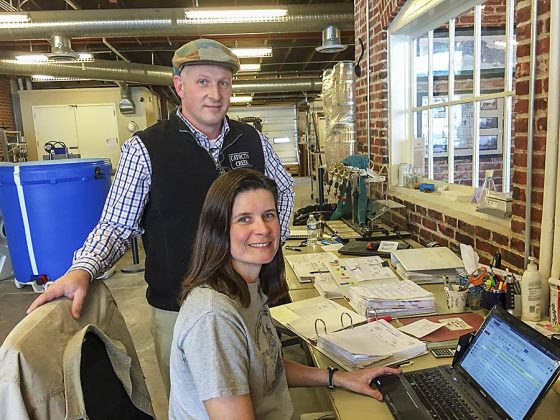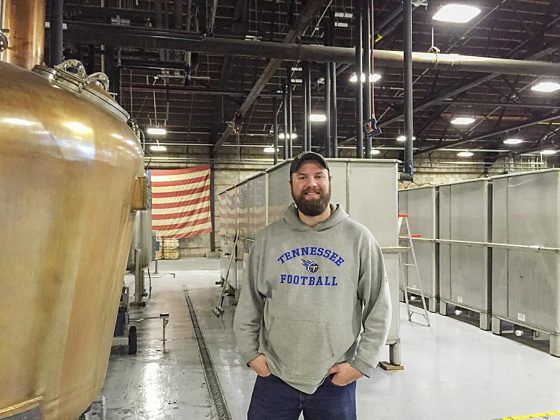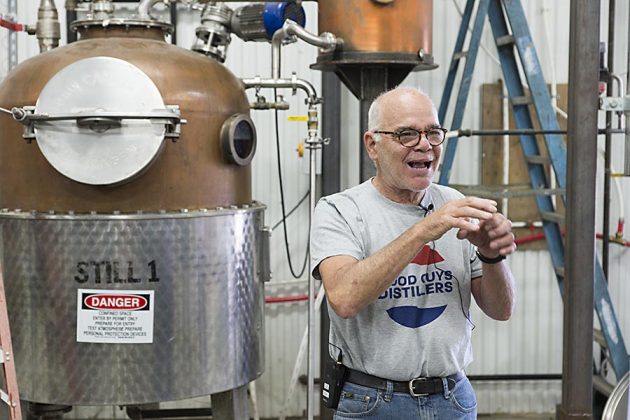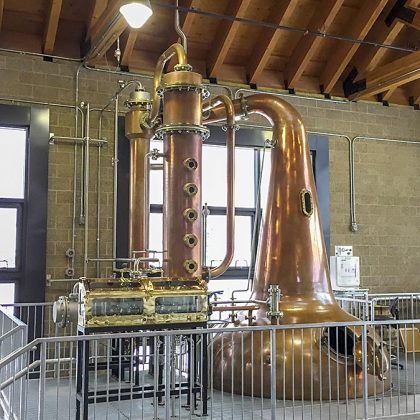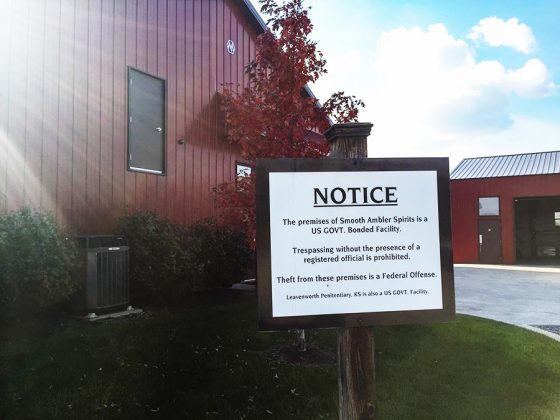Check the industry news headlines from the past few years and you’d be forgiven if you thought there was an ongoing game of distillery dominoes taking place. First one falls—acquired by or invested into by one of the major multinational conglomerates—and then another few fall in quick succession after that.
What captures the attention of most is typically the string of zeroes attached to the purchase price, if we’re even privy to that information. However, is monetary gain the sole driving force behind such deals? What has the experience been like for the distilleries who’ve sold some, or all, of their equity?
In speaking with six distilleries, the resounding refrain is that finding somebody to cut you a check is one thing, but finding a partner that’s a specific match for your organization—your distillery, your spirits, your goals and your needs—is another thing altogether. And that’s what should truly matter most. In an effort to capture a broad range of insight and different perspectives, we spoke with:
Catoctin Creek Distilling—Constellation Brands acquired a minority stake in January 2017.
High West Distillery—Purchased by Constellation Brands in October 2016.
Nelson’s Green Brier Distillery—Constellation Brands acquired a minority stake in January 2016.
Smooth Ambler Spirits—Pernod Ricard acquired a majority stake in December 2016.
Tuthilltown Spirits—Purchased by William Grant & Sons in April 2017, after WGS previously acquired the Hudson Whiskey brand in 2010.
Westland Distillery—Purchased by Rémy Cointreau in December 2016.
(As a disclaimer and by request of several of the parties spoken with for this story, please don’t ask your fellow distillers for financial figures or for connections to partners.)
Planning or Deciding to Sell
For certain distilleries, eventually selling a stake to a larger company was part of the original plan, while for others, the situation more or less dictated itself over time.
“Gaining investment has been our plan from the beginning,” explains Scott Harris, co-founder of Catoctin Creek with his wife, and distiller, Becky. “When Becky and I first started the company, we bootstrapped with our own life savings and used our personal finances as equity. That creates a very stressful situation, because if you fail, you lose everything… including your home. But at that stage, we had nothing except some words on paper. It was the only financing we could get.”
Catoctin Creek eventually raised $1.5 million in private equity from a collection of “local neighbors, friends and community people,” Harris said. This enabled them to grow while avoiding loans, which in Harris’s opinion protect the bank, not your business. From there, the next phase required a more substantial partner. “That’s where venture financing comes in,” Harris said.
“We didn’t get into this to be a micro-distillery,” said Charlie Nelson of Nelson’s Green Brier. “Nor has it, is it or will it be our plan just to build up really big and sell.” Charlie and brother Andy share an ambitious plan for the distillery, and outside investment was necessary to scale up in that fashion.
“The whiskey business is a long, slow play,” Nelson said. Of course, not all investing partners want to make that type of play.
“Over the years, as the business grew along with the capital needs, it put stress on the investors to come up with ways to finance the business and to be patient at the same time,” said John Little, CEO and head distiller of Smooth Ambler Spirits. “Since whiskey takes so long to mature, investment has to be patient money.”
As with Nelson’s, Westland Distillery’s desire for large-scale growth is what brought them to the table. “We didn’t set out to start a distillery, then look for an exit—obviously, I’m still here!” said Matt Hofmann, Westland’s master distiller. “But as we continued to grow it became increasingly apparent how vital it was to have personnel to spread the message not just domestically but globally as well. In order to realize our growing potential, we needed both more capital and go-to-market resources.”
With so many distillery dominoes falling, players on both sides wanted to strike while the iron was hot—while not missing out on any potential opportunities, either. About the other reasons Smooth Ambler opted to get involved, Little said, “I also felt like so many people were creating these partnerships that I didn’t want to be on the outside looking in. I felt the industry was changing.”
Hofmann saw the same dynamic, while viewing it as a sign that larger companies were willing to invest in growth and innovation, as opposed to trying to ward it off. “The acquisition came at an interesting time for the broader spirits business, as many larger companies were increasingly looking to startups for innovation and a compelling path towards the future,” he said. “Rather than fighting this change in the industry they are investing in companies like ours, giving us the autonomy to drive the business and product strategy and bringing their sales and distribution acumen to bear so the world can hear about it.”
Matchmaker, Matchmaker…
Support. Partnership. Non-monetary resources. Certain companies work better together than others, and it’s all about taking the time to find the right match.
Tuthilltown Spirits found a buyer in William Grant & Sons, who stood out in their eyes as a family company, and one with a willingness to make a long-term commitment. “The fact that they are a multi-generational, family-owned business appealed to us, as we knew that they would respect the independent character of Tuthilltown and our own desire to develop a legacy that would endure,” said Ralph Erenzo, Tuthilltown’s founder. “WGS owned a reputation for fair dealing and brand development that was outstanding.”
Catoctin Creek was in talks with Constellation for over a year before a deal was made, and spoke to over a dozen firms. “During the process, we were very choosy,” Harris said. “The company is our baby, and we did not intend to give our baby away or lose control.”
So while money mattered, it was strategic value that truly talked. “A strategic venture investor is more than just money,” Harris said. “Just as importantly, Constellation is a big player in the liquor business, so they have
been critically important in helping us find and choose the right distributors, manage our decision-making process and as a check and balance on our books to make sure everything is correctly managed. We welcome the help and oversight.”
Nelson’s Green Brier found similar support from their shared investor, Constellation. “Ultimately, with Constellation’s investment not only have we gotten a strategic investor… we have someone who said, ‘If you guys need anything, let us know,’” Nelson said.
“One of the most valuable things we got out of the investment was resources—intellectual resources,” said Andy Nelson. “Hey, it’s no secret that I’ve only been distilling for a few years. They’ve got people who have been doing this for a long, long time and know a lot of stuff that I don’t. So it’s been a really great resource not only on the production, but for other things such as marketing. That’s the kind of stuff that’s invaluable.”
As with Catoctin Creek, Nelson’s was also looking to retain ownership and stewardship while giving up only a minority stake. That proved to be the opposite of most companies the brothers spoke with. “Almost every big company we talked to was saying basically, ‘We want to invest and take 51%, and you and your brother, we’ll put you guys on a two-year contract,’” Charlie Nelson said. “And it’s like… no!”
When the High West team opted to sell outright to Constellation, they did their due diligence, including having a lengthy conversation and visit with Ballast Point Brewery, who sold to Constellation in November 2015. They discussed what changed for the company after the purchase, and as High West’s head of marketing Justin Lew recalls, were told essentially, “Nothing really; we can just do it better.”
Westland’s sale to Rémy Cointreau offered a match in the form of product ideology, as the owners of Bruichladdich were already familiar with similar ideals. “The partnership between Rémy Cointreau and Westland makes a lot of sense because we align on concepts like authenticity and terroir,” Hofmann said. “These are tenets Rémy holds dear.”
What Happens Next
Who retains operational control, what kinds of new processes are put into place, are there new staff members or hierarchies, what physical or logistical investments were made to improve or increase production and distribution? These are only a few of the immediate considerations after the contract is signed.
An initial infusion of money can provide a positive jolt in any area of need. At High West, Lew said funds were quickly moved to buy additional high-quality stocks for blending, while purchasing a new mirror-image still to match what was already in-house. At Catoctin Creek, a new warehouse was built, there were branding redesigns and increased marketing, along with a quick growth of distribution from 10 states to 25. “Our goal was to get our gorgeous liquid into more markets nationally, and this would have been impossible without Constellation’s involvement,” Harris said.
Smooth Ambler was able to quickly put capital toward new equipment and barrel inventory, improvements to the tasting rooms and tours, as well as a variety of internal departments, such as legal, HR and accounting assistance. “Growing a business from a tiny operation to something larger means we were spending more time doing things that didn’t improve the business,” Little said. “We needed help in that area.”
Having more resources allows distillers such as Little to focus on, well, actually distilling. That’s something Tuthilltown also benefited from after initially selling just the Hudson Whiskey brands. “In addition to the distribution, it brought distilling expertise and above all health and safety benefits for our staff,” Erenzo said. “It also freed the distillery up to focus on more innovation in our line since Hudson Whiskey would be managed by WGS.”
Adapting to the Change
Is it all sunshine and rainbows? Not exactly, but finding the right partner to begin with helps to ensure that transitions go as smoothly as possible. “The process has been better than I expected,” Harris said. “Sure, there are periods of getting used to new people, getting used to new financial reporting, being answerable to a new entity, but I welcome the help.”
High West’s Lew describes a positive transition, including the important fact that, “Everybody is still here,” he said, from the top of the company down to all of their employees. Elsewhere though, while High West gained access to, for instance, a large sales team from Constellation, there was a learning curve in terms of ensuring everyone was properly educated about the brand, its products and its positioning. Elsewhere in day-to-day operations, they found decisions now have to be backed by proper financial modeling and justification aligned with Constellation’s plans for how to continue growth.
The time and logistics of decision-making is something Little also pinpoints. “Personally, I’m not much of a corporate guy so it’s taking a little time to get used to keeping everyone informed, and getting things formally approved, instead of doing whatever I think is best,” he said. “I’m not a fan of long meetings. But in the end, the communication has made us better managers and improved our business.”
Westland also was able to keep its staff in place and has been following a similar process of adapting to a new organization. “It’s hard to say exactly what expectations we had for the process, as none of our team—who have all stayed with Westland by the way—have been through it before,” Hofmann said. “Our biggest adjustment, and biggest challenge, is in adapting to the scale of everything. But then again, that’s what we were hoping for when partnering with Rémy Cointreau. Things take a bit longer but that’s only because we have an order of magnitude more people to
communicate to, especially as we go to market.”
Tuthilltown was already intimately familiar with William Grant after the previous sale of the Hudson Whiskey brands. It’s no surprise then that Erenzo has been happy with the next transition. “William Grant & Sons has made it clear that they value Tuthilltown for what it is and what it does, as well as the way we conduct our affairs,” Erenzo said. “The impact of new ownership by WGS has had a continuing positive impact upon both the backstage operations, and staff security and safety. Derek Bain, the on-site WGS manager, has infused the staff with a growing sense of pride in their work.”
As with any good partnership, communication and shared goals provide a solid foundation for continued growth.
“I’ve never gone to [the New Brand Ventures department of Pernod] with an idea that wasn’t embraced,” Little said. “They want to learn entrepreneurship from us, and we want to learn to be a little more buttoned-up from them. It’s a good partnership.”
Harris shares the same mind-set. “Honest, open communication is key,” he said. “If we are successful, they are successful, and that understanding and mutual admiration is key to a good working relationship.”

